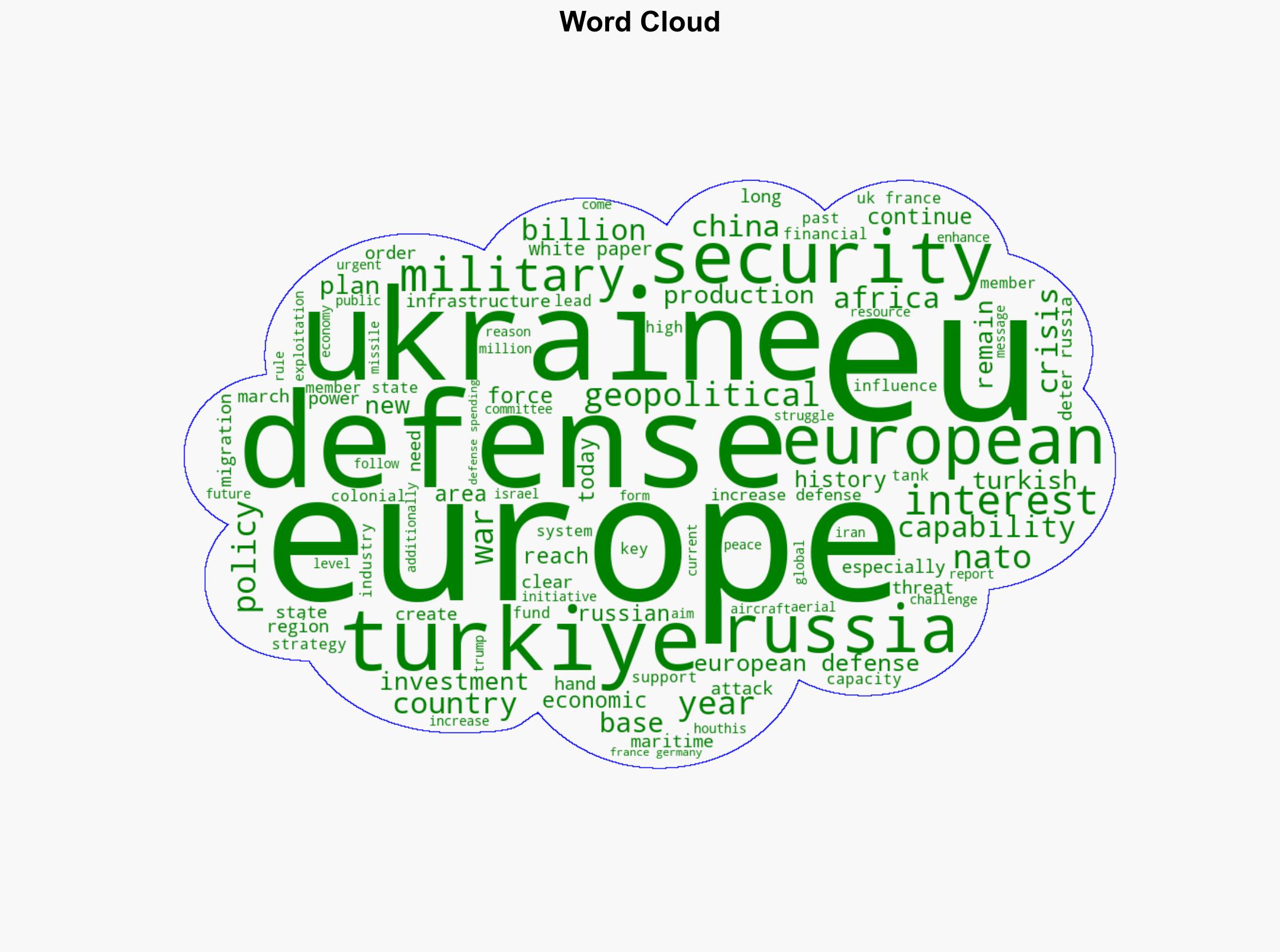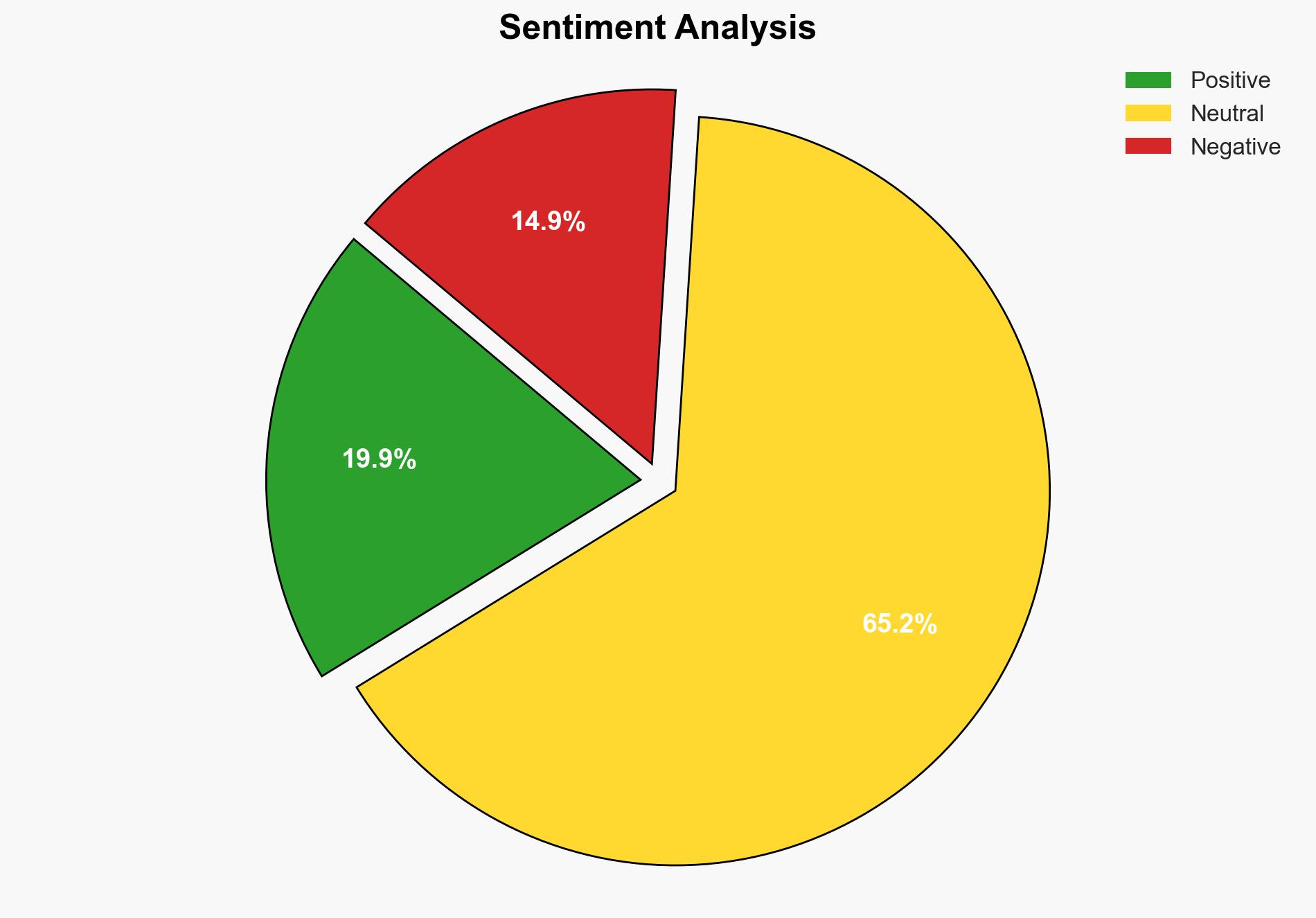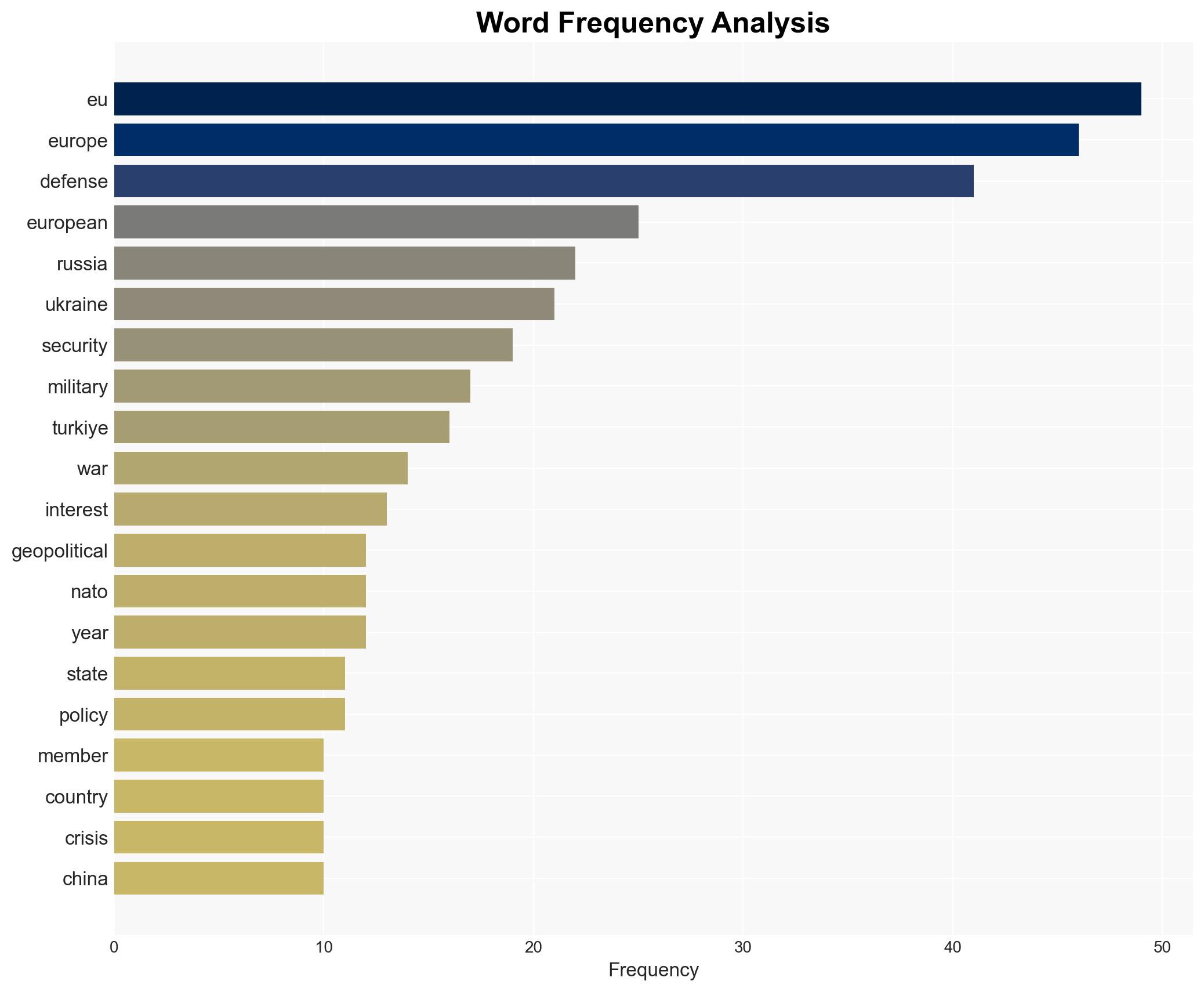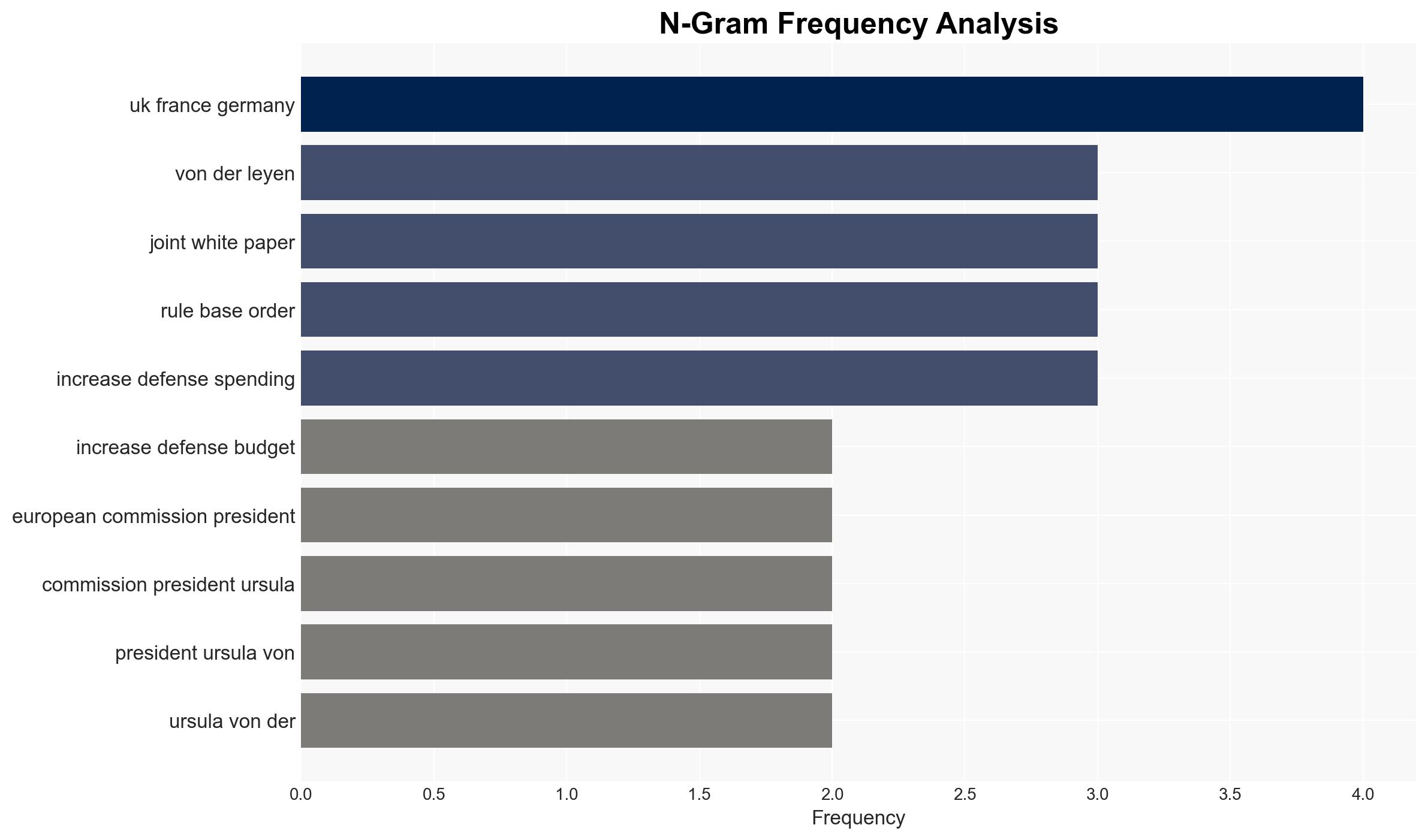EU Defense Identity Without the US and the Position of Turkiye – Globalresearch.ca
Published on: 2025-03-31
Intelligence Report: EU Defense Identity Without the US and the Position of Turkiye – Globalresearch.ca
1. BLUF (Bottom Line Up Front)
The EU is increasingly seeking to establish its own defense identity independent of the US, driven by a shift in US geopolitical priorities towards the Asia-Pacific region and Israel. This realignment has accelerated European defense policy development, with significant implications for NATO and EU security strategies. Turkiye’s position remains pivotal in this evolving landscape.
2. Detailed Analysis
The following structured analytic techniques have been applied for this analysis:
General Analysis
The reduction of US defense contributions to Europe, as indicated by leaked communications, highlights a strategic pivot towards other global regions. This has prompted European nations to reassess their defense capabilities and alliances. The EU’s efforts to enhance its defense identity are complicated by internal divisions and historical rivalries, particularly among key nations such as the UK, France, and Germany. Additionally, the ongoing conflict in Ukraine and the need to deter Russian advances present immediate challenges to European security.
3. Implications and Strategic Risks
The shift in US defense priorities poses significant risks to European security, potentially leaving the EU vulnerable in areas such as nuclear deterrence. The lack of a cohesive EU defense strategy could lead to increased competition among member states, undermining collective security efforts. Furthermore, the EU’s reliance on NATO frameworks may be insufficient to address emerging threats, particularly from Russia and in the context of the Ukraine crisis.
4. Recommendations and Outlook
Recommendations:
- Enhance EU defense capabilities through increased investment in joint military initiatives and technology development.
- Foster stronger diplomatic ties with non-EU countries to diversify security partnerships and reduce reliance on NATO.
- Encourage EU member states to develop a unified stance on key security issues, particularly regarding Russia and Ukraine.
Outlook:
Best-case scenario: The EU successfully establishes a cohesive defense identity, enhancing regional stability and reducing reliance on US military support.
Worst-case scenario: Internal divisions and lack of strategic direction lead to a fragmented EU defense posture, increasing vulnerability to external threats.
Most likely outcome: Incremental progress towards a unified EU defense strategy, with ongoing challenges in balancing national interests and collective security goals.
5. Key Individuals and Entities
The report mentions significant individuals such as Hegseth and Trump, as well as entities like the EU, NATO, and Turkiye. These actors play crucial roles in shaping the current geopolitical landscape and the future of European defense strategy.




